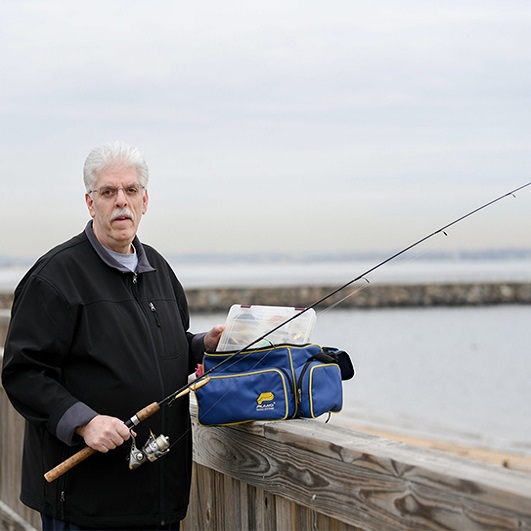
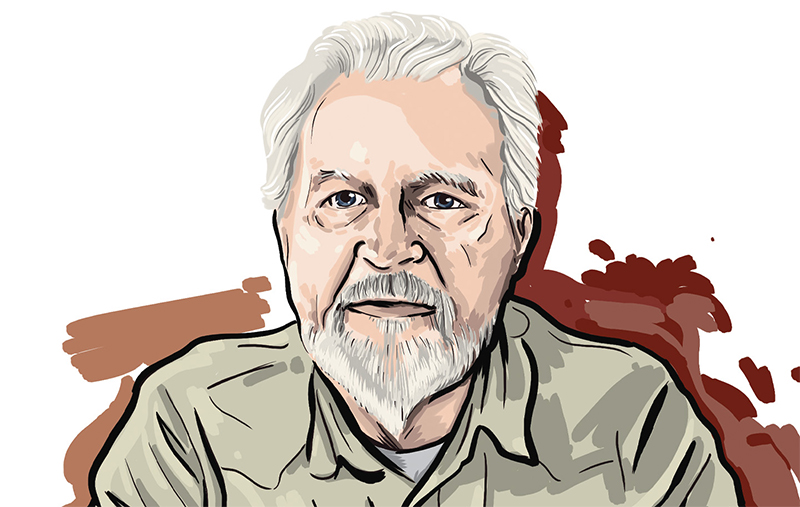
Typically, we photograph every patient appearing in HealthU. Because this story was planned during the surge of COVID-19, that contact would have been too risky. Instead, our team took a creative approach and replaced photo shoots with illustrated portraits of patients.
Since the spring, COVID-19 has delayed proms, graduation ceremonies, sports seasons, weddings and, at times, even elective surgery for some people. Fred Klag of Richfield, New Jersey, is one of those people. A retired trucker who still drives the occasional rig, the 77-year-old grandfather of two was recently treated for a tenacious kidney stone occurrence. Because of the pandemic, however, he had to defer treatment for three months while hospitals in New Jersey were closed to elective surgeries.
Fred’s stones were diagnosed at Palisades Medical Center on March 1, just a few days before New Jersey confirmed its first case of COVID-19. “I was in the hospital for three days,” he says. “They first tried a procedure that didn’t work because my stones were too large, so they were going to try doing a different procedure. Then coronavirus happened, and everything stopped.”
History Repeating Itself
Many people in Fred’s shoes might have panicked at the thought of retaining stones that were meant to pass. But Fred had been here before. Four years prior, all of a sudden, he began to experience sharp, stabbing pains in his back and stomach. His late wife, a nurse, immediately guessed that he had kidney stones.
“The pain was so terrible that I had tears in my eyes,” Fred recalls. “It was excruciating. I wouldn’t wish that kind of pain on anybody.”
Intense as it was, the pain only lasted four hours. Nevertheless, a doctor’s appointment the next morning confirmed what Fred’s wife had suspected. His stones were treated using shock wave lithotripsy, wherein shock waves targeted the stones from outside the body in an attempt to break them into tiny pieces that can be passed naturally with urine through the urethra. Because the stones were so large, however, the treatment failed.
“The kidney stones weren’t bothering me anymore, so the doctor said, ‘Let’s just leave them alone,’” Fred recalls. “He said they’d do what they had to do if the kidney stones started bothering me again, but they didn’t bother me again for almost four years.”
Although the pain the second time wasn’t nearly as bad as it had been the first time, it wasn’t pleasant. “Once in a while, I had pain in the back, but it was mostly just constant discomfort,” Fred says. “It made it so I didn’t want to do anything. I didn’t even want to eat. And if I don’t want to eat and have a cold beer, you know something must be wrong.”
A New Treatment Option
His doctor knew right away that his stones had returned—they’d probably never left in the first place—and sent him to Palisades. When shock wave lithotripsy once again failed, urologist David Chang, M.D., prescribed laser lithotripsy, wherein lasers instead of shockwaves are used to pulverize the stones so they can pass.
“With this procedure, we insert a long, thin telescope into the urethra. It’s like a colonoscopy in that we use a natural opening,” Dr. Chang explains. “From there, the telescope goes up into the bladder, then the left or right kidney. We visualize the stone and apply a laser to it so that it shatters into pieces that are small enough—1–2 millimeters in diameter—to flush out on their own without the patient feeling it.”
The outpatient procedure, which takes just 15–30 minutes, was ideal for Fred because he ended up having not only kidney stones, but also bladder stones. Both types of stones were easily vanquished during the same procedure—that is, once he finally had the procedure, which wasn’t until mid-June.
In the interim, Fred regularly checked in with Dr. Chang by phone and took every bathroom break in stride. “It was uncomfortable, but I could live with it,” he says.
When New Jersey allowed hospitals to resume elective surgeries in May, Fred took his place in line. Knowing that Palisades was following strict safety protocols—isolating COVID-19 patients, requiring facial coverings and social distancing, and mandating pre-operative COVID-19 tests for all surgical patients—made him feel safe. Instead of anxiety about contracting coronavirus, he felt relief about finally resolving his stones.
“I went in during the morning, and I came out in the afternoon,” says Fred, who that evening experienced pain and blood in his urine—both of which are normal—but otherwise had a swift recovery. “I woke up the next morning and everything was like new again.”
Although most patients require a post-operative stent to keep urine flowing freely while broken-up stones pass, Fred didn’t. Almost immediately, he was urinating normally again. That allowed him to quickly resume the activities he loves most, like working in his yard and riding his motorcycle. “I have no complaints,” Fred says. “I feel great.”
Next Steps & Resources
- Meet your source: David Chang, M.D.
- To make an appointment with David Chang, M.D. or another provider, call 800-822-8905 or visit our website
Find a doctor near me
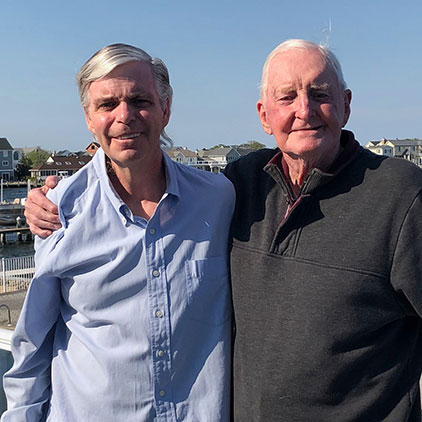
Father and Son Overcome Colorectal Cancer Thanks to Timely Screenings
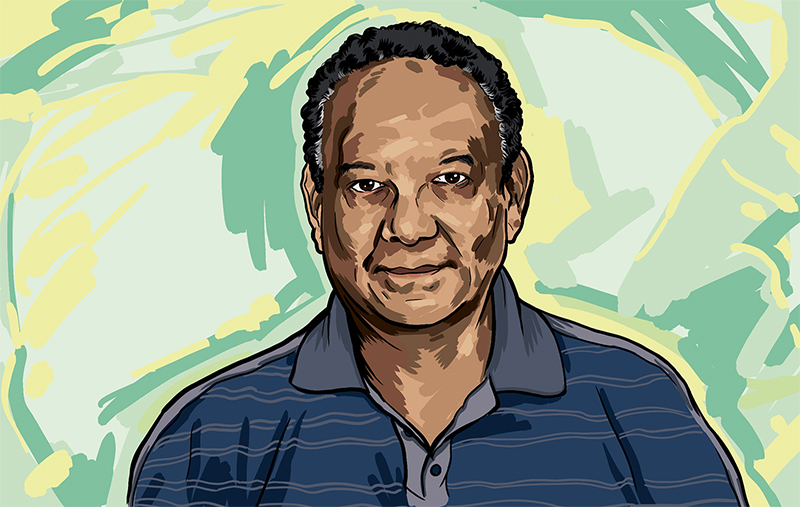
A Surgery-Free Way to Treat an Enlarged Prostate
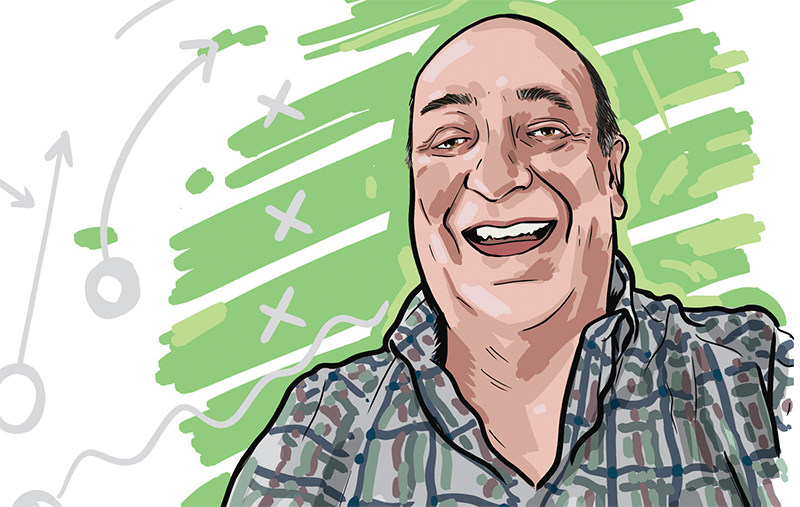
A New Game Plan With Interventional Radiology
